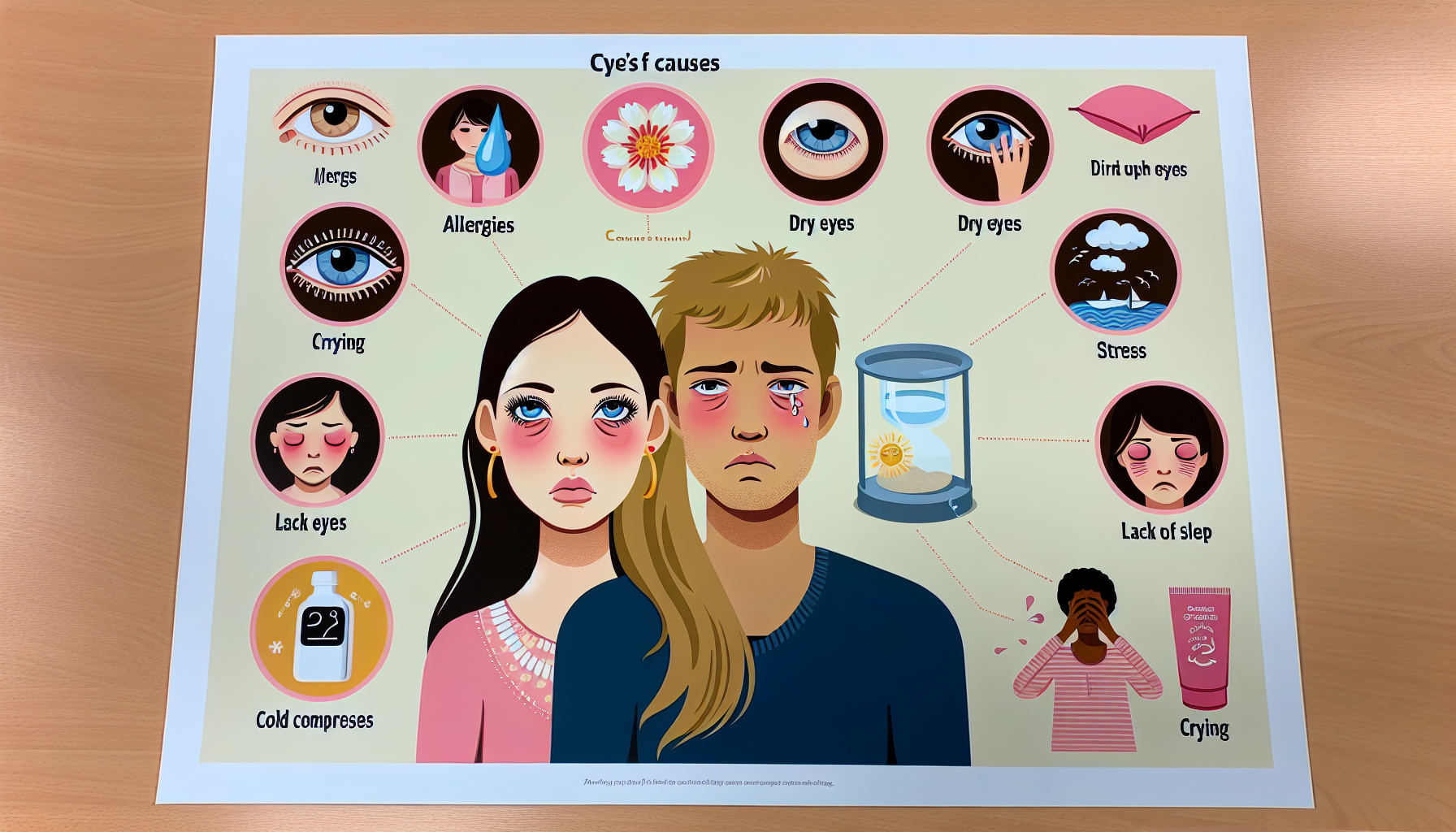Title: The Hidden Perils of Puffiness: Understanding Why Our Eyes Swell
Do you recall a morning when you woke up, only to be greeted by swollen, puffy eyes staring back at you in the mirror? Perhaps it was a night filled with tears or simply a few too many late-night snacks. The truth is, our eyes are a sensitive part of our anatomy, and they can swell up for a variety of reasons more often than we might realize. While it’s normal to experience occasional puffiness, consistent swelling can signal underlying health issues. Join me as we delve into the common causes of swollen eyes and explore how to address them effectively.
1. Lack of Sleep
Have you ever wondered why your under-eyes puff up after a restless night? According to Anar Mikailov, MD, FAAD, co-founder of Skintensive, "Insufficient sleep can lead to an increase in certain hormones that cause fluid retention." During sleep, our bodies work tirelessly to filter out toxins, and lacking this crucial downtime can hinder detoxification processes, leading to that dreaded puffiness beneath your eyes. Case in point: Many people find themselves battling eye swelling after late-night Netflix binges or early-morning alarms.
2. Sleep Position Matters
Feeling groggy from sleep but still sporting puffy eyes? Your sleeping position could be to blame! Dr. Mikailov explains, "If you sleep on your stomach, fluid can accumulate around your face, particularly under the eyes." Using an extra pillow to elevate your head can help alleviate this issue. Consider this: Imagine the difference between waking up with a refreshed glow rather than a puffy visage. A small adjustment in sleep posture can go a long way!
3. Hormonal Changes
If you experience puffiness in sync with your menstrual cycle, you aren't alone. Women often notice eye swelling due to fluctuating hormone levels, particularly progesterone, leading to fluid retention. A friend's experience illustrates this well; each month, right before her period, she would complain of feeling "overloaded" and self-conscious about her puffy eyes.
4. Allergies
Seasonal allergies can wreak havoc on our sinuses, often manifesting as swollen, itchy eyes. When pollen counts rise in spring, countless individuals find themselves battling eye swelling alongside sneezing and sniffling. As Dr. Mikailov puts it, "[Histamine] release increases inflammation, causing the common puffiness we see around the eyes." For many, investing in allergy medications or dampening allergy triggers at home can offer immense relief.
5. Dehydration
Ironically, when our bodies lack water, they tend to hold onto the precious fluid they can retain, contributing to puffiness. If you're consistently not drinking enough water, you might find your body struggling to maintain hydration levels, leading to excess fluid retention. A perfect example is my colleague, who found that by increasing her water intake, her morning eye puffiness diminished significantly.
6. The Aftermath of Crying
A good cry can be cathartic, but it often leaves us with swollen eyes afterward. As Dr. Mikailov points out, crying causes fluid accumulation in the tissues around the eyes. If you’ve ever shed tears at a heart-wrenching movie finale, you know exactly the resultant puffy-eyed reflection you face. If this describes you, consider cooling down your eyes with a chilled compress to reduce swelling.
Final Thoughts
Whether it’s due to sleep deprivation, hormonal shifts, allergies, or emotional responses, puffiness around the eyes is often a temporary nuisance. Nevertheless, frequent swelling can serve as a sign that should not go unnoticed. By understanding the various triggers, you can take proactive steps to mitigate their effects and maintain an appearance that reflects your vibrant inner self. Adopt a well-rounded approach that encompasses hydration, proper sleep, and even the occasional emotional release—because your eyes certainly deserve nothing less than the best!
